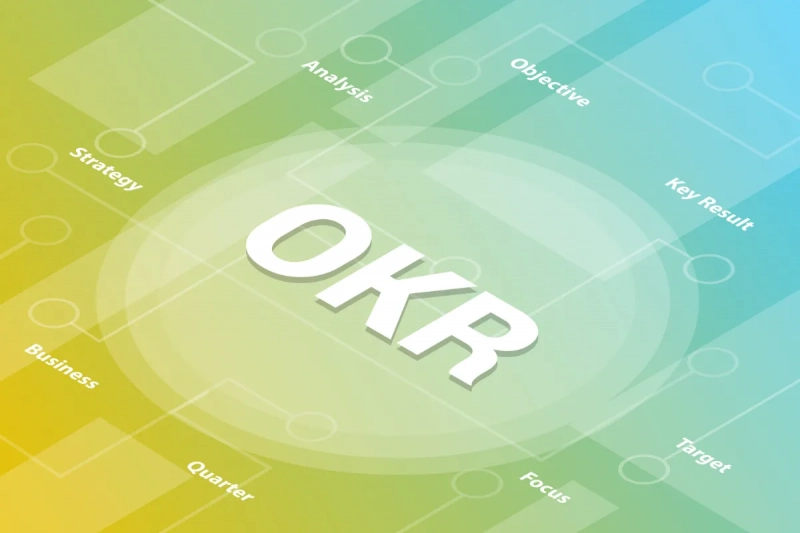Setting ambitious goals is easy. Hitting them? That’s where most startups stumble.
The difference often comes down to having the right system in place - and that usually means OKR software. The problem is, the market is crowded. Every platform claims to be “the simplest” or “the most powerful,” but not all of them are built with fast-moving teams in mind.
With dozens of options promising to boost alignment, improve focus, and accelerate growth, it’s easy to get lost in the noise. The truth is, the best tool isn’t necessarily the one with the longest feature list, but the one that matches your team’s needs and stage of growth.
So how do you separate “nice to have” from “must have”? Here are 7 essential features every startup or scaling business should look for when evaluating OKR software.
1. Simple Setup and Onboarding
Startups don’t have weeks to spend rolling out new systems. That’s why the first feature to look for is simplicity. The right OKR platform should be intuitive from the moment you log in, with clean dashboards, guided templates, and workflows that don’t require lengthy training.
If it takes a half-day workshop just to explain how to create an objective, it’s too complicated. Instead, choose a tool that allows you to set company-level goals and link them to team or individual OKRs within minutes.

Simplicity matters because it accelerates adoption. The faster your team can start using the software, the sooner you’ll see the cultural and performance benefits of OKRs. In early-stage companies, that can be the difference between chaos and clarity.
2. Clear Goal Visibility
Transparency is at the heart of effective OKRs, and your software should reflect that. Look for tools that make it easy to see the hierarchy of goals - from top-level company objectives to individual key results - at a glance.
When teams can see what others are working on, silos start to dissolve. Marketing understands how their campaigns support sales targets. Product knows how feature releases affect customer success. Everyone has a line of sight into the bigger picture.
This visibility also builds trust. When goals are visible, people spend less time guessing or politicking and more time contributing. The best OKR platform will give every team member the same access to priorities and progress - no hidden spreadsheets, no forgotten updates.
3. Customizable Check-Ins
One of the biggest mistakes startups make with OKRs is setting them at the start of a quarter and not looking at them again until it’s over. OKR software solves this problem by making regular check-ins part of the process.
Weekly or bi-weekly updates don’t need to be time-consuming. In fact, they should be lightweight - just a quick reflection on progress, blockers, and next steps. Good platforms will automate reminders and provide simple prompts to encourage meaningful updates.
Customizability matters here. Some teams prefer structured reflection questions; others want simple status updates. Choose a tool flexible enough to fit your workflow, not the other way around. Regular check-ins keep OKRs alive, turning them from a static document into an active rhythm of accountability and learning.
4. Flexibility for Remote and Hybrid Teams
Very few teams are fully office-based. Whether your team is spread across time zones or split between home and office, your OKR software needs to support remote and hybrid collaboration.
That means having dashboards that are accessible anywhere, real-time updates that don’t depend on meetings, and communication features that ensure no one gets left out of the loop. Tools that integrate with chat apps like Slack or MS Teams can help, but the real win is in platforms that make asynchronous updates seamless.
Remote-friendly design ensures OKRs don’t become another siloed system that only works if everyone’s in the same room. Instead, they become a unifying framework that connects teams no matter where they’re working from. For scaling startups, this flexibility isn’t a luxury - it’s a necessity.
5. Scalability Without Complexity
Your OKR tool should grow with you. A platform that works well for a 5-person team should still support you at 50 or 500 - without becoming bloated or confusing. Scalability is about flexibility: the ability to add new teams, create more layers of goals, or expand reporting without overhauling the whole system.
Pricing plays a role too. Many enterprise OKR platforms charge per user, which can punish startups as they grow. Look for transparent, team-based pricing models that let you scale affordably.
Most importantly, scalability shouldn’t compromise simplicity. If the tool gets harder to use as you add people, it’s not the right fit. The best platforms balance growth and usability, ensuring your processes evolve with your business, not against it.
6. Reporting and Analytics
OKRs aren’t just about setting goals - they’re about tracking progress and learning along the way. That’s why strong reporting and analytics are essential. Look for software that offers visual dashboards, progress charts, and easy-to-read summaries.
Good analytics do more than show a percentage complete. They highlight trends, surface risks, and provide insights into which teams are moving forward and which are stuck. This visibility enables leaders to make informed decisions quickly, whether it’s reallocating resources, removing blockers, or celebrating wins.
Advanced features like historical tracking can also help startups learn over time. By comparing past cycles, you’ll see whether your goal-setting discipline is improving and whether the right objectives are being chosen.
7. Support for Learning and Templates
For many teams, OKRs are new territory. That’s why built-in guidance is a huge advantage. The best tools offer templates for common objectives (like product launches or fundraising), tips for writing measurable key results, and even AI-powered suggestions to spark ideas.
This support reduces “blank page syndrome.” Instead of staring at an empty field wondering how to phrase an objective, your team can draw from proven examples.
Learning support also helps build culture. When teams understand the “why” behind OKRs and see examples of how to apply them, adoption becomes easier and more sustainable. A tool that doubles as an educational resource is worth its weight in gold for startups.
3 OKR Tools We Recommend
1. OKRs Tool – Simple and Startup-Friendly
OKRs Tool is built specifically for startups, with a strong focus on clarity and speed. The platform strips away unnecessary complexity, offering clean dashboards, AI-powered goal suggestions, and team-based pricing that scales affordably.
You can set objectives in minutes, run weekly check-ins, and keep everyone aligned with Slack integrations that meet teams where they already work.
Why startups love it: OKRs Tool doesn’t overwhelm you with enterprise features you’ll never use. Instead, it focuses on what startups need most - clarity, alignment, and accountability. For small, resource-conscious teams, it delivers structure without sacrificing agility.
2. Weekdone – Building OKR Habits Through Reflection
Weekdone is ideal for teams brand-new to OKRs. Beyond just goal-tracking, it emphasizes habit-building with weekly planning, reflection templates, and lightweight progress updates.
This makes it less intimidating for teams rolling out OKRs for the first time.
Why startups love it: Weekdone teaches the rhythm of OKRs by embedding reflections and feedback into the weekly workflow. It’s especially useful for founders who want their teams to build consistency and discipline without needing a formal OKR coach. Over time, the structured reflections help create a culture of transparency and focus.
3. Perdoo – Connecting Strategy and Execution
Perdoo is designed for startups and scaleups that want to go beyond tracking OKRs and actually map strategy. Its visual strategy maps connect company-level objectives, KPIs, and team goals, so everyone can see how daily work links to the bigger picture.
Why startups love it: Perdoo bridges the gap between vision and execution. Instead of OKRs living in isolation, they’re part of a broader system that includes KPIs and long-term strategy.
For growing teams managing multiple departments, this connection provides clarity and reduces the risk of misalignment.
Final Thoughts
The best OKR software doesn’t overwhelm you with features - it gives you the right ones. By focusing on simplicity, visibility, and adaptability, you’ll find a tool that supports your culture as much as your goals.
Remember, OKRs are not just about hitting targets. They’re about building a rhythm of alignment and accountability that keeps your team focused, even as you scale. Choose software that supports that rhythm, and you’ll have a system that grows with you - without slowing you down.
Post Comment
Be the first to post comment!





